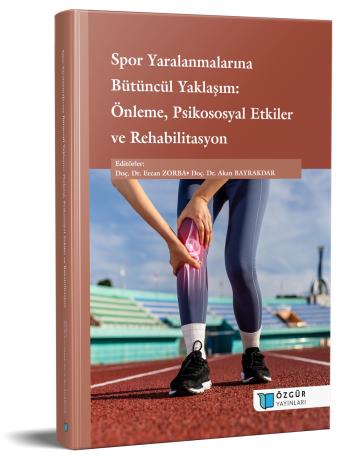
Psychological and Psychosocial Dimensions of Sports Injuries
Chapter from the book:
Zorba,
E.
&
Bayrakdar,
A.
(eds.)
2025.
A Holistic Approach to Sports Injuries: Prevention, Psychosocial Effects, and Rehabilitation.
Synopsis
Sports injuries are not merely physical traumas but multidimensional phenomena that threaten the athlete’s psychological, social, and identity integrity. This study addresses the psychological and psychosocial aspects of sports injuries within the framework of the biopsychosocial model. Literature findings indicate that psychological reactions such as anger, denial, depression, loss of motivation, and fear of re-injury play a decisive role in the success of rehabilitation. Moreover, psychological factors including stress, distraction, and motivational imbalance are emphasized as contributors to increased injury risk. In the return-to-sport process, psychological readiness is as important as physical recovery; confidence, fear, and identity reconstruction determine the quality of this transition. Cognitive-behavioral interventions, imagery techniques, relaxation methods, and motivational interviewing have proven effective during rehabilitation. Additionally, social support stands out as a strong protective factor in athletes’ adaptation. Supportive attitudes from coaches, families, and teammates enhance morale and motivation, whereas exclusionary behaviors may hinder recovery. Consequently, adopting a holistic approach to sports injuries strengthens not only physical recovery but also psychological resilience and social belonging.

